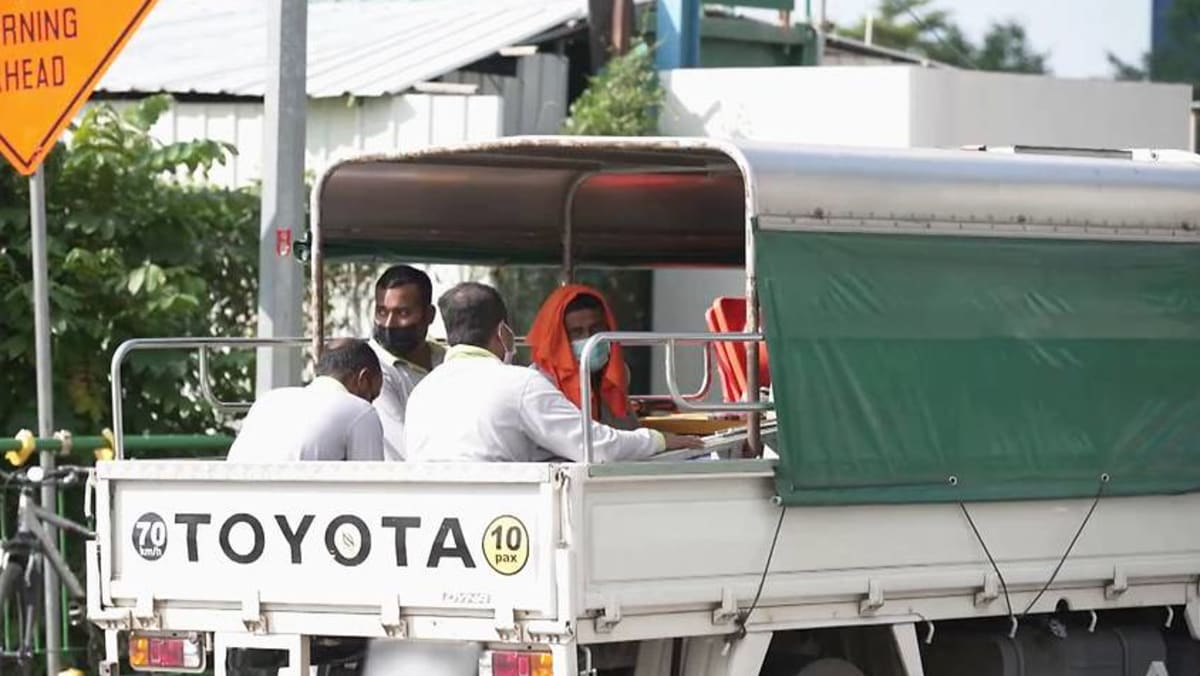
On Jul 24, more than 40 groups, businesses and individuals put out a joint statement calling for the Government to provide a timeline of measures working towards banning the transportation of workers on lorries.
They included bodies advocating for foreign workers and other groups, a law firm, a music events firm, a mental health advocacy group and activists for a range of causes.
Speaking to TODAY last month, Nee Soon Group Representation Constituency Member of Parliament Louis Ng said that he supports the Jul 24 statement, and had at the July sitting of Parliament also reiterated his call for such a timeline ahead of a ban on the transportation of workers on the backs of lorries.
The business community’s statement on Tuesday was addressed to Prime Minister Lee Hsien Long, Acting Minister of Transport Chee Hong Tat and Senior Minister of State Amy Khor.
The business groups said that the situation regarding safety in the transporting of workers had improved over the years but presents “real challenges that demand responsible and thoughtful engagement with various stakeholders”.
“Over the years, since 2011, we have taken significant strides in enhancing transportation safety for our workers, including the latest requirements under the Road Traffic Act, by closely collaborating with the Ministry of Transport and the Ministry of Home Affairs (the Traffic Police) and the relevant authorities.
“As a business community, we are proud to share that many of our larger companies have successfully transitioned, either fully or partially, away from transporting workers on the back of lorries.”
The Road Traffic Act does not allow for passengers to be transported on the back of lorries, however it makes an exception for transporting workers employed by the vehicle’s owner or if it is carrying someone injured in an emergency situation.
The business groups’ statement added that geographical constraints, limited infrastructure and economic realities that certain regions and industries face play a part in necessitating the widespread practice of transporting workers on lorries.
“Regulatory changes have the potential to acutely affect industries that have historically relied on this practice, leading to potential delays in completing projects and risking the livelihoods of workers who depend on these industries for their employment.”
It also stated that the associations are “resolutely committed” to working closely with the Government, relevant authorities, labour unions, and safety experts to develop a “well-considered strategy” to ensure the safety of its workers.
The statement ended by saying that the business groups appreciate the public’s sense of urgency of addressing worker safety, and that they would “continue to navigate the complexities involved and actively seek innovative ways to enhance worker safety”.
This article was originally published in TODAY.

